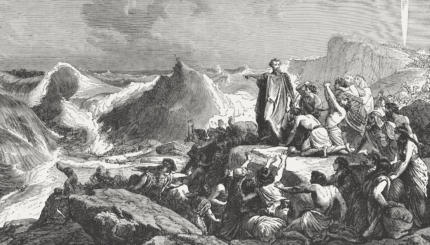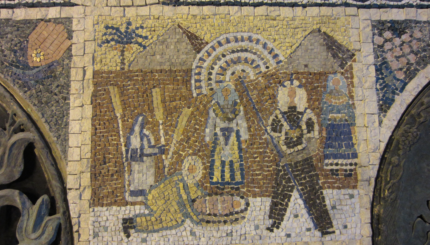Commentary on Parashat Shemot, Exodus 1:1-6:1
Every week, Julie Seltzer, artist and Torah scribe, bakes a challah depicting an aspect of the week’s Torah portion.
She took for him an ark of bulrushes, and daubed it with slime and with pitch; and she put the child in, and laid it in the flags by the river’s brink. (Exodus 2:3)
וַתִּקַּח-לוֹ תֵּבַת גּמֶא, וַתַּחְמְרָה בַחֵמָר וּבַזָּפֶת; וַתָּשֶׂם בָּהּ
אֶת-הַיֶּלֶד, וַתָּשֶׂם בַּסּוּף עַל-שְׂפַת הַיְאר

Pharaoh decrees that all male Hebrew babies must be killed. In order to save him, Moses’ family places him in a basket and sends him down the Nile where he is later found by none other than Pharaoh’s daughter.
With your help, My Jewish Learning can provide endless opportunities for learning, connection and discovery.
ark
Pronounced: ark, Origin: English, the place in the synagogue where the Torah scrolls are stored, also known as the aron kodesh, or holy cabinet.
challah
Pronounced: KHAH-luh, Origin: Hebrew, ceremonial bread eaten on Shabbat and Jewish holidays.
Torah
Pronunced: TORE-uh, Origin: Hebrew, the Five Books of Moses.


